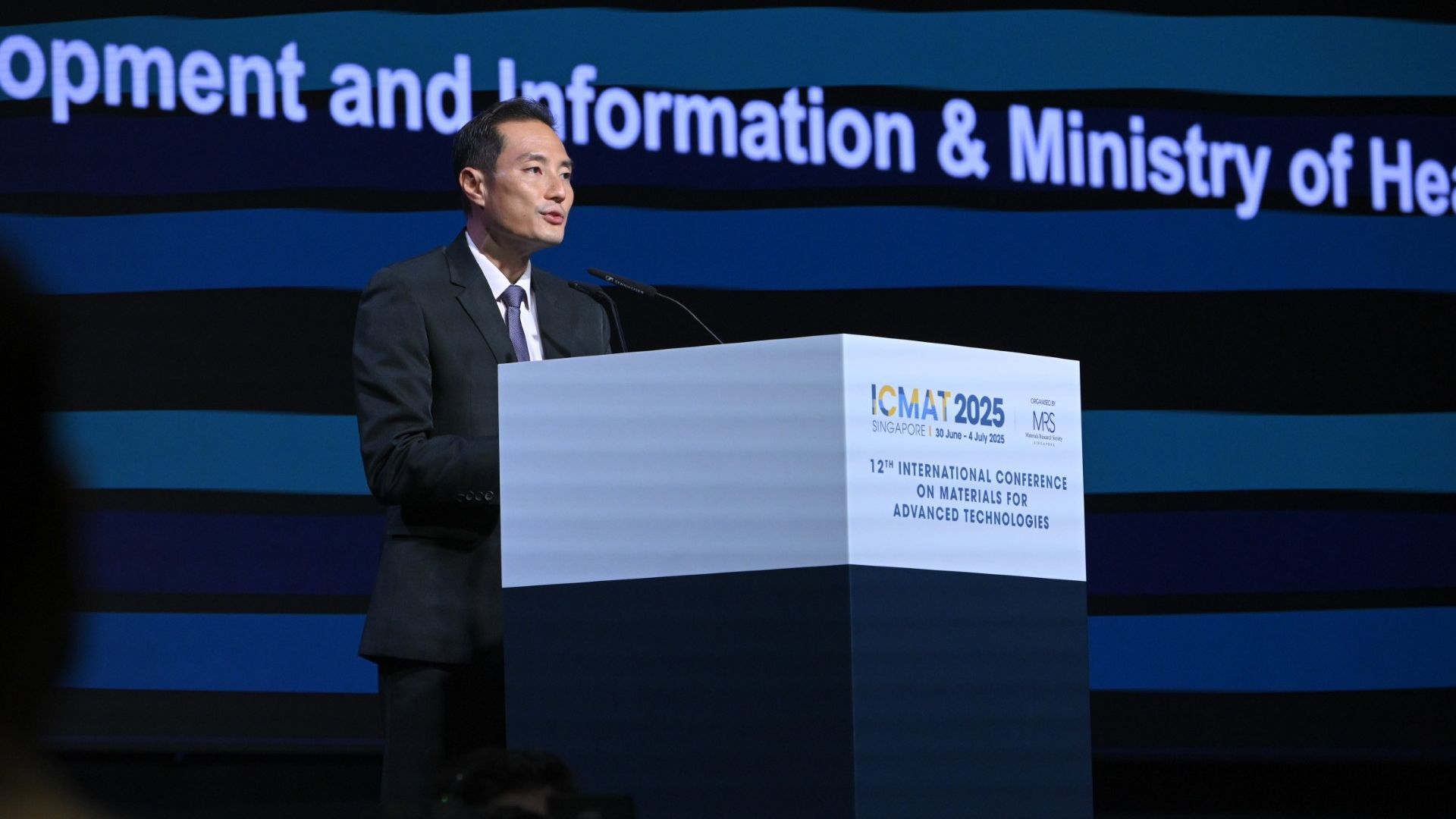Singapore sees a material science focus in the use of AI funds for research
By Sol Gonzalez
The “AI for Science” initiative aims to support research with AI-powered platforms, shared Senior Minister of State for Digital Development and Information, Tan Kiat How.

SMS Tan highlighted the potential of accelerating breakthroughs in material science with artificial intelligence at the 12th International Conference on Materials for Advanced Technology. Image: MDDI
Senior Minister of State for Digital Development and Information, Tan Kiat How, said one-third of proposals received under the first “AI for Science” initiative focused on materials science.
He was speaking as the Guest-of-Honour at the 12th International Conference on Materials for Advanced Technology (ICMAT) held in Singapore on June 30.
This year’s conference highlighted innovations in quantum materials, semiconductors, AI-enabled discovery, and sustainable technologies.
The event was organised by the Materials Research Society of Singapore (MRS) and gathered over 2000 researchers and industry experts from around the world.
As part of Singapore’s Smart Nation 2.0 launched last year, a S$120 million fund was allocated to the “AI for Science” initiative, focused on developing artificial intelligence (AI) methods and tools to enhance scientific research.
The initiative was meant to back collaborations between AI researchers and experts in different scientific fields, support the development of AI-driven platforms and tools, and will fund projects proposed by the research community on the “AI for Science Challenge” grant.
Unlocking potential for materials science
The updated vision of the Smart Nation plan spotlighted AI as the main transformative force in the technological sphere.
“As a general-purpose technology, AI realises its true value when applied across our economy and society. It improves business processes, it transforms operations, and it creates value through new products and solutions,” said Minister Tan.
He highlighted the potential of transforming materials science with AI. Since traditional methods of discovery in the field can take years, AI can help to accelerate and optimise the process.
Some of the potential advantages would be to advance the discovery of new materials for clean energy and introduce more sustainable manufacturing.
This is something that the US Department of Energy’s Berkeley National Laboratory’s A-Lab has already tapped on. The researchers used AI to assess the real-world viability of potential new materials, increasing the processing 50 to 100 times as many samples as a human in a single day.
Strengthening collaborations
SMS Tan called for global collaboration to support the development of scientific innovations in Singapore.
He noted that many of the proposals submitted for the “AI for Science” project aimed to draw on the expertise of researchers and collaborators around the world.
“This collaborative approach is essential […] we need partnerships across research institutions, and we need engagement with industry partners. Government agencies can facilitate and support this process.
“We must remain a trusted hub and node. This allows us to translate scientific breakthroughs into practical solutions with real-world impact. Solutions that benefit not just Singapore, but the world,” he added.
AI and science for the future
Behind Singapore’s economic transformation stands the commitment to invest in science and technology, said Tan.
Singapore Government’s support for the “AI for Science” initiative came as AI stepped to the front as a critical technology, impacting processes and developments across different fields in Singapore.
Tan shared the example of SELENA+, the Singapore Eye Lesion Analyser, which detects threatening eye conditions in diabetic patients and delivers results in just minutes.
The deep-learning AI software was developed in Singapore and now serves in local healthcare institutions.
In 2020, the Government committed to fund S$28 billion for the Research, Innovation and Enterprise (RIE) plans from 2021 to 2025, and the next share of funding is underway for RIE2030, Tan added.